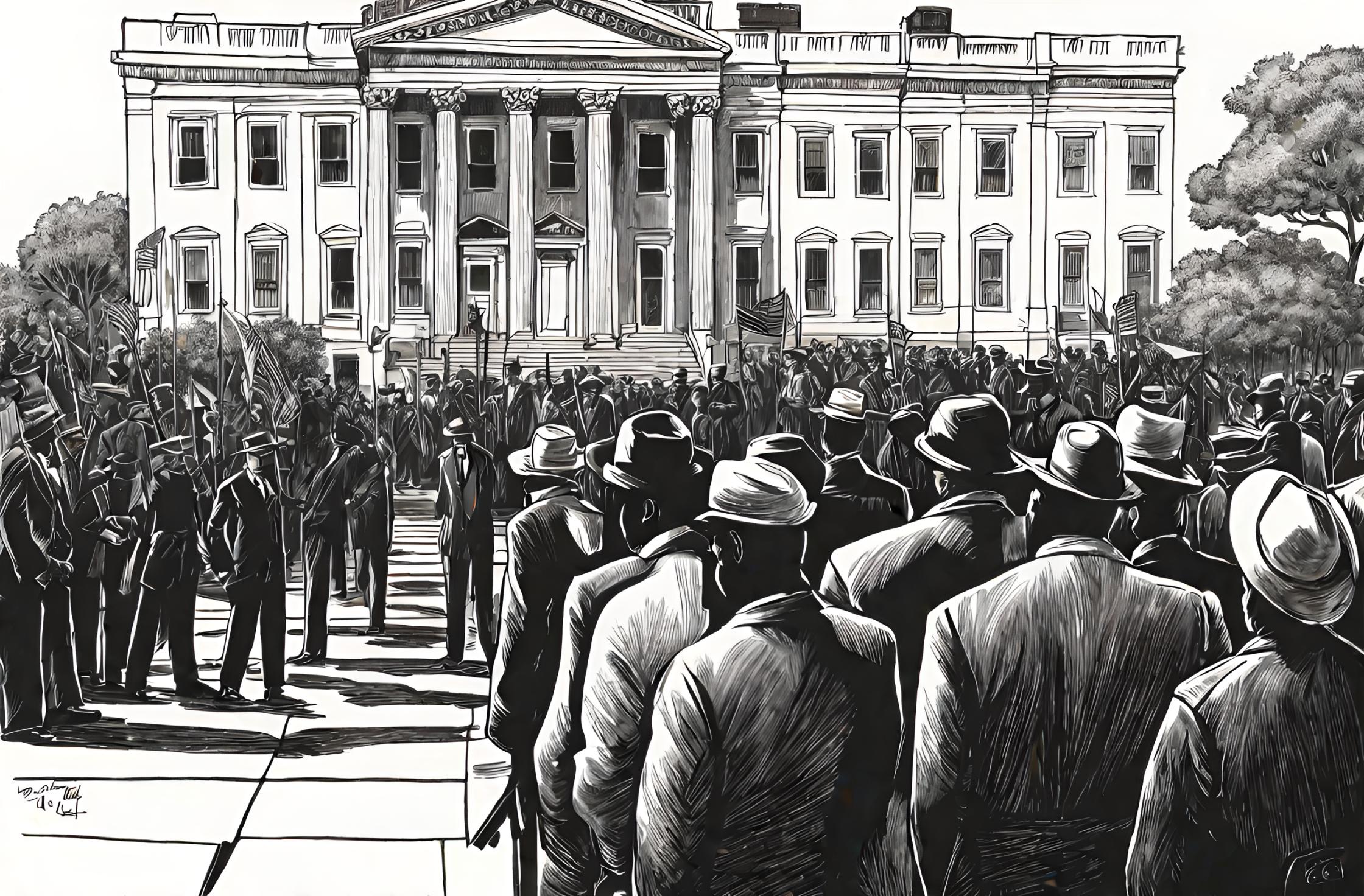Flashback to December 2
American History

The Civil Rights Act of 1875, enacted on March 1, 1875, was a hallmark legislation in United States history. It showcased the first governmental action to ensure equality among all citizens, regardless of color or race, by asserting their rights in public places. Despite its eventual invalidation by the Supreme Court, the Act remains a pivotal piece of racial equality chronicle and continues to inspire current laws and movements.
Passed during the Reconstruction era following the Civil War, the Civil Rights Act of 1875 aimed at protecting African Americans from race discrimination and was a powerful testament to the U.S government’s initiative to eliminate racial barriers. It was often referred to as the “Enforcement Act” because it enforced the 14th amendment, which granted equal protection under the law to its citizens.
Spearheaded by Senator Charles Sumner and Representative Benjamin Butler, former abolitionists, the Act initially proposed “full and equal benefit of all laws and proceedings concerning personal liberty, personal security, and the acquisition, enjoyment, and disposition of estate, real and personal, including the constitutional right to bear arms,” for all citizens. It was an influential step towards establishing racial equality and justice.
However, the Civil Rights Act of 1875 fell short due to its vague language, lack of enforcement, and social backlash from states with significant populations that favored segregation. Instead of demanding equal treatment, it ended up prohibiting racial discrimination exclusively in public places, thus giving way to the ‘separate but equal’ paradigm that dominated the following decades.
The Act’s downfall occurred in 1883 when the U.S Supreme Court declared it unconstitutional. The court reasoned that the 14th amendment only protected against state infringements and not individual acts of discrimination. This ruling halted the progress towards racial equality for nearly a century until the Civil Rights Act of 1964 reestablished the legal foundation to combat discrimination.
Despite being short-lived and imperfect, the Civil Rights Act of 1875 played an essential role in shaping the U.S legal landscape. It served as a prism that refracted changing societal attitudes toward racial inequality, catalyzing future rights movements. In retrospect, it has expanded the understanding of the concept of equality in the American context.
The importance of the Civil Rights Act of 1875 in the fight against racial discrimination cannot be overstated. While its enforcement was weak and it was eventually struck down, it prompted a national conversation about racial equality that would continue into the 20th century.
When it comes to providing an exhaustive study of the Civil Rights Act of 1875, it is critical to understand its context, progression, and influence on future legislation. Despite the setbacks, the Act was a radical experiment in racial equality that marked the beginning of a resilient fight against racial discrimination.
Scheduled to coincide with the 100th anniversary of the abolition of slavery in the United States, the Act has been recognised as a pioneering force working towards guaranteeing African Americans their unalienable rights. It was the first step in a long journey which, while fraught with setbacks, eventually led to significant civil rights advances.
the Civil Rights Act of 1875 was a trailblazing law intended to guarantee equal rights to all Americans regardless of their race or color. Although it was eventually considered unconstitutional, it was an invaluable precursor to the Civil Rights legislation that followed in the 20th century. Today, its spirit lives on as we continue to strive for true racial equality in America.
We strive for accuracy. If you see something that doesn't look right, click here to contact us!
Sponsored Content

The United States Senate…
In a historic decision…

Enron Corporation, based in…
"Enron Corporation, the once-dominant…

John Brown US abolitionist,…
On December 2, 1859,…

